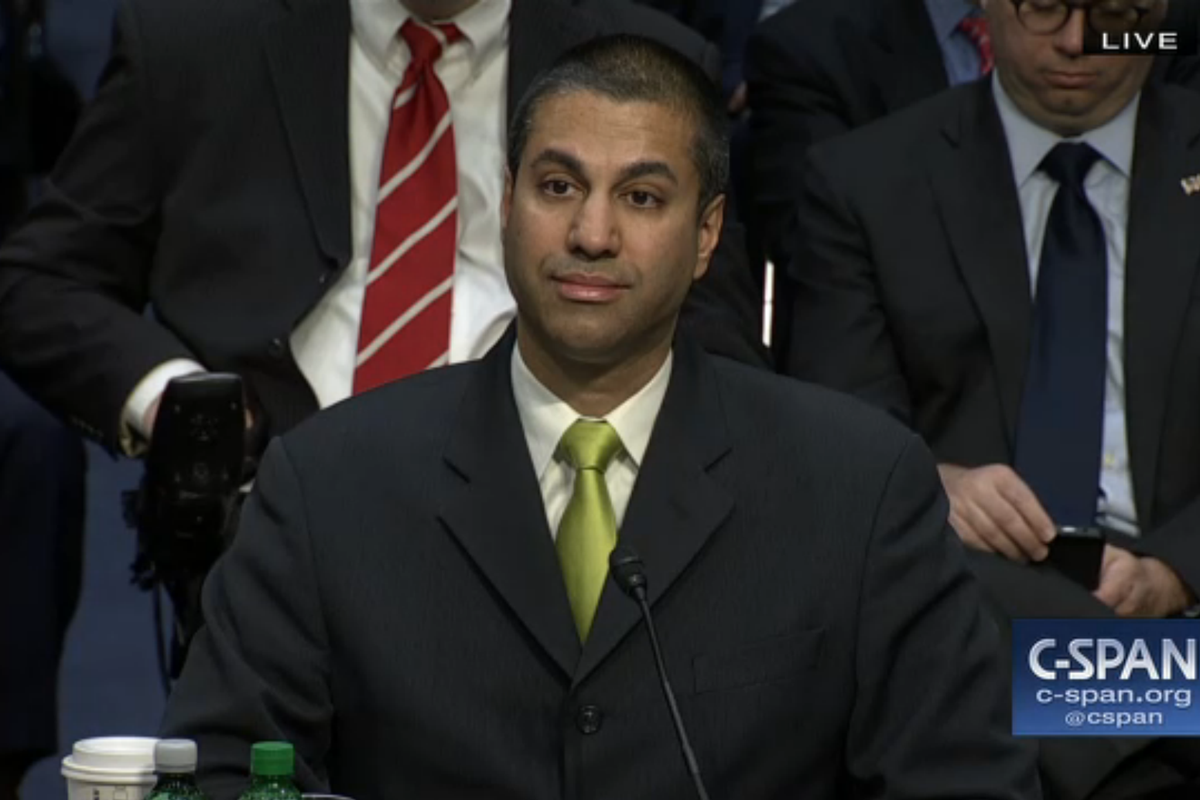Coronavirus Roundup: FCC Chairman Ajit Pai Takes Steps on Spectrum, Lifeline and Broadcasting During Pandemic
The Federal Communications Commission’s Wireless Telecommunications Bureau on Tuesday granted U.S. Cellular, a wireless telecommunications network, to use additional spectrum to help meet increased customer demand for mobile broadband during the coronavirus pandemic. The order will allow the company
David Jelke

The Federal Communications Commission’s Wireless Telecommunications Bureau on Tuesday granted U.S. Cellular, a wireless telecommunications network, to use additional spectrum to help meet increased customer demand for mobile broadband during the coronavirus pandemic.
The order will allow the company to operate for 60 days in spectrum licensed to Advantage Spectrum in the AWS-3 Band in order to provide additional capacity to U.S. Cellular customers in parts of California, Oregon, Washington, and Wisconsin. This order follows a similar order that expanded T-Mobile’s spectrum access.
“During this crisis, the FCC is committed to pulling out all the stops so that broadband service providers are able to meet the changing needs of the American public,” said FCC Chairman Ajit Pai.
“I would like to thank Advantage Spectrum for agreeing to make its spectrum available for this important effort. I would also like to thank U.S. Cellular for taking the initiative and looking for ways to better serve customers who are making significant adjustments to their daily lives to minimize in-person interactions and slow the spread of the coronavirus. We will continue to do everything we can to Keep Americans Connected.”
FCC waives Lifeline rules to help low-income consumers during coronavirus crisis
The FCC on Tuesday announced changes to the Lifeline program to aid community efforts to slow its spread.
The FCC notes that the Lifeline program plays an important role in ensuring that low-income Americans have access to affordable communications services by providing monthly discounts on broadband and voice services to qualifying consumers, and the agency said that its changes will ease burdens on Lifeline subscribers during the coronavirus pandemic and allow Lifeline carriers to focus their efforts on assisting customers.
“As Americans across the country turn to online services to enable social distancing measures, the importance of access to affordable communications, especially for low-income households, has only increased,” Pai said in a press release. “During times of crisis, maintaining connections to family and friends, medical professionals and educators, and your coworkers is imperative, and I don’t want any American consumers experiencing hardships because of the pandemic to lose connectivity
FCC Chairman Ajit Pai commends broadcasters, calls for further action
In a Monday conference call with television and radio broadcasters and broadcaster trade associations, Pai thanked them for their efforts to educate the American people about the coronavirus pandemic.
He also suggested additional ways that broadcasters can help Americans stay safe and informed during the coronavirus outbreak.
“Going forward, I urged them to air public service announcements featuring prominent entertainment and sports personalities, and local news anchors asking Americans to practice the social distancing that is needed to combat this pandemic,” Pai said. “We need this vital message to be delivered by Americans who are familiar to different segments of our society, and broadcasters are ideally situated to the task.”
During the call, Chairman Pai specifically thanked the National Association of Broadcasters for making available a Coronavirus Response Toolkit to radio and television stations and sharing coronavirus-related public service announcements with them, and Spanish-language broadcasters for conveying important information in Spanish.
Pai also asked broadcasters to work with cable and satellite operators to avoid service disruptions during the next 60 days, such as by agreeing, if necessary, to short-term extensions to expiring retransmission consent agreements.









Member discussion